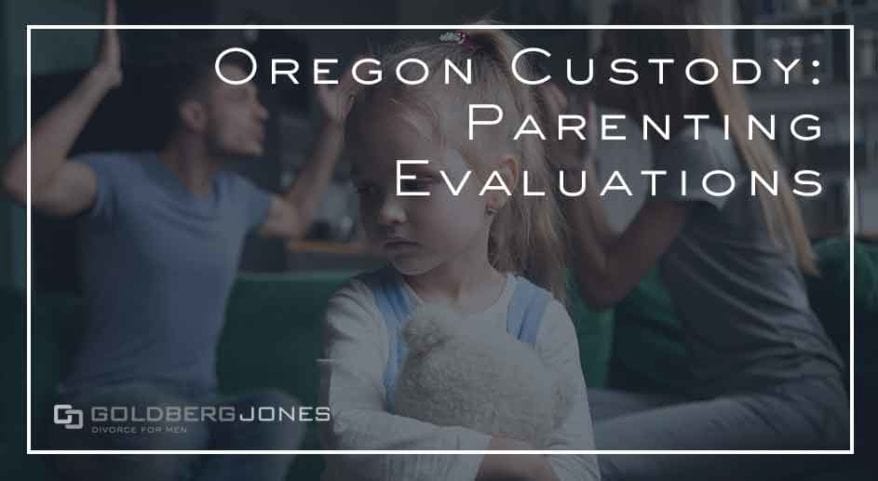Child custody cases pose many issues during and after divorce. Problems arise that make it difficult for couples to reach a suitable custody agreement. Ideally, both parties will work together to create an acceptable parenting plan and residential schedule. But that doesn’t always happen. Parents often have to turn to the courts to issue custody orders. In these cases, the court may order a parenting evaluation.
For parents mired in contentious custody battles, going to court can be an unsettling proposition. The question of how the courts decide custody comes up often. At a basic level, the best interests of the child take precedence over other concerns. Above convenience, parental preference, and all the rest.
What Is A Parenting Evaluation?
In Oregon, custody evaluations frequently play a role in these cases. A parenting evaluation is a formal investigation to assess the parenting skills of the parties involved and to determine which parent is best suited to be the primary caregiver for the child.
An impartial third party examines the facts at hand and advises the court about what is truly best for the children.
Evaluations aren’t court cases and so evaluators aren’t constrained by evidentiary rules. They review documents, interview witnesses, speak to the children, request assessments (drug, alcohol, psychiatric, etc.), and more. All of this goes into determining the ideal course of action.
Custody evaluations can be much more thorough and less costly than pure litigation.
The courts view these appraisals and recommendations as objective reports. As a result, parenting evaluations often result in settlements. This often minimizes legal costs, attorney fees, and time associated with lengthy litigation.
Related Reading: Enforcement Proceedings: Protecting Your Custody Rights
Who Can Request a Custody Evaluation?
Though the court often puts a lot of stock in these evaluations, the parties involved initiate them. One or both parents can request such an option.
In most cases, the attorneys agree on a private evaluator. But if they can’t, the courts have the discretion to appoint one.
Usually, the party who makes the request foots the bill and the court reserves the contribution to trial.
So if you make the request, be prepared to pay the tab when the time comes. Parenting evaluations can be expensive and may cost thousands of dollars depending on the circumstance. They are, however, still usually cheaper than a full trial.
Related Reading: How Legal Marijuana Impacts Child Custody
How Do Courts Determine Custody?
When determining child custody, the courts keep several goals in mind. Identified by the National Association of Social Workers, these are to:
- Identify the developmental needs of the child(ren);
- Pinpoint the strengths, vulnerabilities, and needs of all other members of the family;
- Identify the positive and negative family interactions;
- Develop a plan for custody and access utilizing the strengths of each individual that will serve the best interests of the child(ren) and within those parameters, the wishes, and interests of the parents.
Related Reading: What Happens When the Court Appoints a Guardian Ad Litem
How is a Custody Evaluation Conducted in Oregon?
A parenting evaluation contains many elements.
Interviews form a big part of the process. This includes talking to both parents, the child, significant caretakers, and people who spend a substantial amount of time with the kids. Basically, anyone who knows the child well and can offer insight into the situation, like teachers, daycare providers, and others.
Home visits to both parents’ residences also factor in, as do psychological assessments.
Records and documentation are also important. The more relevant documentation you can provide to support your case, the better off you will be.
It is important to note that relevancy is paramount when it comes to documentation. Sheer volumes of irrelevant paperwork do nothing to further your case. In fact, it may cost you extra money in evaluation fees and damage your position.
Providing relevant and organized documentation shows you’re methodical and dedicated to providing credible information.
Educating yourself on your rights and your options as a parent is imperative. The outcome of your parenting evaluation may impact your relationship with your child for years to come.
Related Reading: What Is The UCCJA? A Look At How It Protects Children
